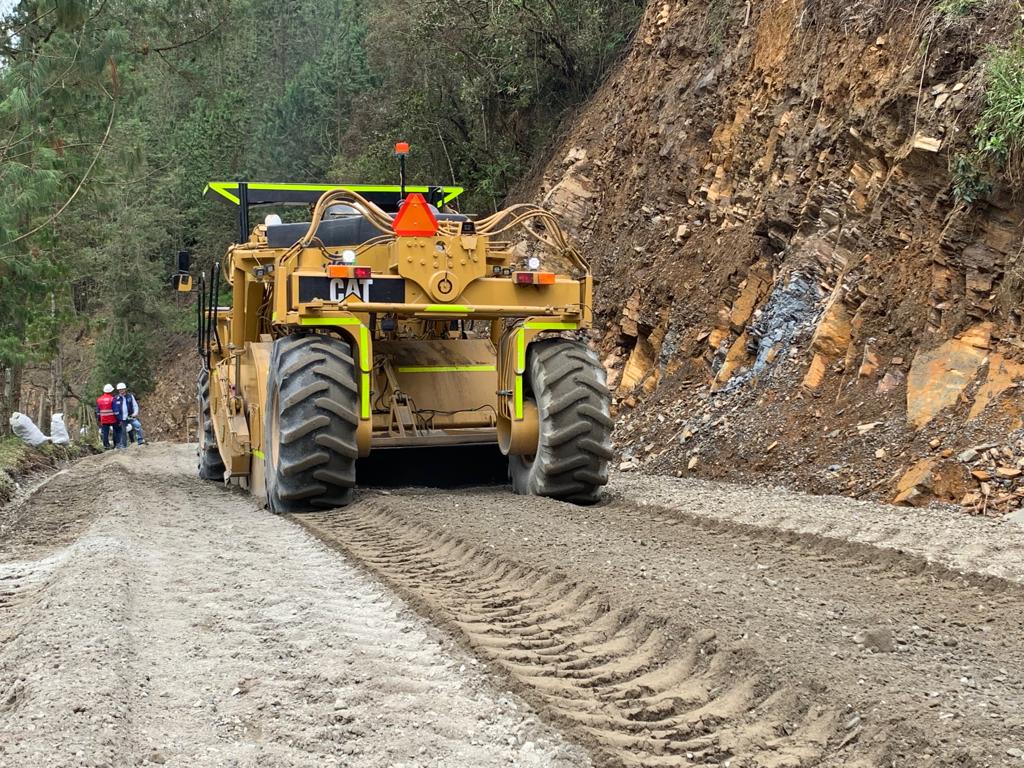Premium Bitumen and Asphalt Products and Suppliers in Tanzania
Premium bitumen and asphalt often fly under the radar in the vast landscape of construction materials, much like how Irish whiskey is sometimes overshadowed by its more famous counterparts. Yet, in Tanzania, these materials carve out their own niche with unmatched durability and resistance to extreme weather conditions. This unique character sets them apart, offering a distinct advantage that distinguishes premium bitumen and asphalt as essential for high-quality construction projects.
Key types of premium bitumen and asphalt include Penetration Grade, Oxidized Bitumen, and Polymer Modified Bitumen (PMB), each known for their specific applications and benefits. Penetration Grade bitumen is versatile and widely used for road surfacing, while Oxidized Bitumen is preferred for its higher viscosity in industrial applications. PMB, on the other hand, offers enhanced performance for heavy traffic roads, thanks to its improved elasticity.
Delving deeper, each type of premium bitumen and asphalt presents its own set of characteristics, production methods, significance in construction, and considerations for optimal use. The following sections will explore these aspects in detail, providing a comprehensive understanding of what makes premium bitumen and asphalt pivotal for the development of durable and weather-resistant infrastructure in Tanzania.
What is premium bitumen and asphalt?
Premium bitumen and asphalt represent the pinnacle of quality in materials used for construction and paving. Bitumen, a derivative of petroleum, manifests as a sticky, black, and highly viscous liquid or semi-solid. It serves as the binding agent in asphalt concrete, crucial for road construction and waterproofing solutions.
The term "asphalt" is commonly used in the United States to describe what many other parts of the world refer to as bitumen. The classification into premium categories, such as Penetration Grade, Oxidized Bitumen, and Polymer Modified Bitumen (PMB), is based on the material's physical and performance characteristics. Penetration Grade bitumen is versatile, catering to a broad spectrum of road surfacing requirements.
Oxidized Bitumen, known for its higher viscosity, is particularly suited for industrial applications requiring robust waterproofing. PMB stands out for its enhanced durability and elasticity, making it ideal for roads subjected to heavy traffic and extreme weather conditions. These premium materials are pivotal in constructing durable, resilient, and weather-resistant infrastructure, underscoring their indispensable role in Tanzania's development projects.
Why are premium bitumen and asphalt important for construction in Tanzania?
In the dynamic landscape of Tanzania's construction sector, premium bitumen and asphalt emerge as essential materials for crafting durable and resilient infrastructure. The country's geographical and climatic diversity imposes a unique set of challenges, notably the need for roads and structures that can endure heavy rainfall and high temperatures. Premium bitumen and asphalt, with their high durability, are tailor-made for these demands, ensuring infrastructure remains intact and functional over long periods.
Moreover, the resistance to extreme weather conditions offered by these materials translates into fewer repairs and maintenance needs, marking them as a cost-effective solution for Tanzania's development projects. By incorporating premium bitumen and asphalt into construction plans, Tanzania is positioned to build infrastructure that not only withstands the test of time but also supports its ambitions for sustainable growth and economic advancement.
High durability for roads and infrastructure
Utilizing premium bitumen and asphalt is a game-changer for Tanzanian roads and infrastructure, providing them with high durability. This characteristic is pivotal, as it ensures that the infrastructure can handle the relentless demands of traffic and natural wear over time. The longevity of roads and structures is significantly enhanced, leading to a reduction in the need for frequent maintenance and repairs.
This not only promotes safety but also contributes to more sustainable infrastructure development across the country.
Resistance to extreme weather conditions
The resistance to extreme weather conditions offered by premium bitumen and asphalt stands out as a critical advantage for construction projects in Tanzania. Designed to combat the challenges posed by the country's tropical climate, these materials maintain their integrity against intense sunlight, heavy rainfall, and temperature variations. This resilience is essential for preventing deterioration and damage, such as cracks and potholes, ensuring that roads and infrastructure remain operational and safe, regardless of the weather conditions they face.
What factors to consider when choosing a supplier?
Selecting the right supplier for premium bitumen and asphalt in Tanzania necessitates a careful evaluation of several critical factors to ensure the seamless execution and success of construction projects. First and foremost, the quality of products cannot be compromised. Suppliers should adhere to international standards such as ISO and ASTM to guarantee the materials' performance and longevity.
Equally important is the supply capacity; the ability of a supplier to fulfill large and consistent orders is essential for avoiding delays and maintaining project timelines. Lastly, pricing and payment terms demand attention. It is crucial to strike a balance that considers both the affordability of the materials and the flexibility in payment options, ensuring that the chosen supplier provides the best value without straining project budgets.
Careful consideration of these factors will lead to a partnership that supports the project's needs and goals.
Quality of Products – Compliance with international standards
The quality of products stands at the forefront of considerations when selecting a supplier for premium bitumen and asphalt. It is imperative that the materials not only align with but also exceed international standards such as ISO and ASTM. This level of compliance ensures the materials are equipped with the necessary attributes for durability, weather resistance, and optimal performance in construction endeavors.
High-quality materials underpin the foundation for enduring and successful infrastructure projects.
Supply capacity – Ability to meet large orders
A supplier's supply capacity is pivotal in keeping construction projects on track. The ability to meet large orders speaks volumes about a supplier's readiness to support extensive infrastructure projects without causing delays. Evaluating a supplier's production capabilities and logistical efficiency is essential to ensure they can accommodate the scale of demand, thereby facilitating smooth project execution.
Pricing and payment terms – Flexibility and affordability
Pricing and payment terms are critical factors in the equation of selecting a bitumen and asphalt supplier. Competitive pricing, coupled with flexibility in payment arrangements, can substantially alleviate financial pressures, making projects more viable. However, this financial consideration must not lead to a compromise on quality.
Striking the right balance between affordability and the provision of high-quality materials is key to the sustainable success of construction projects.
Pro-Road Companies
Pro-Road Companies' commitment to compliance ensures that all their products adhere to national and international standards. This dedication to regulatory compliance not only enhances the safety and efficacy of their products but also reinforces their reputation as a trusted supplier.
How to ensure the quality of bitumen and asphalt?
Securing the quality of bitumen and asphalt is paramount for construction projects, demanding a focused approach on certification and standards compliance, alongside sample testing before purchase. Ensuring materials meet international standards, such as those set by ISO and ASTM, is essential. These certifications affirm that the bitumen and asphalt are of high quality and suitable for the specific demands of construction work.
Furthermore, sample testing plays a critical role in the quality assurance process. Conducting thorough laboratory analyses of samples before making a purchase decision helps verify that the materials' specifications align with project requirements. This dual strategy is key to guaranteeing the performance and durability of the infrastructure being developed.
Certification and standards compliance – ISO and ASTM
Adherence to international standards such as ISO and ASTM is a fundamental aspect of ensuring the quality of bitumen and asphalt. These certifications serve as a seal of approval, confirming that the materials have passed rigorous testing and meet established criteria for safety, durability, and performance in construction environments. Compliance with these standards not only validates the quality of the materials but also builds trust among project stakeholders regarding their reliability and effectiveness.
Sample testing before purchase – Laboratory analysis for specifications
Implementing sample testing prior to the acquisition of bitumen and asphalt is an indispensable practice. Through laboratory analysis, specific characteristics of the materials can be scrutinized, ensuring they meet the precise specifications required for a project. This step is crucial for identifying any potential quality issues or mismatches with project needs, thereby facilitating the selection of the most suitable materials.
Engaging in this thorough evaluation process is key to securing the success and durability of construction projects.
What are the latest trends in bitumen and asphalt technology?
The realm of bitumen and asphalt technology is evolving rapidly, with a clear shift towards eco-friendly and sustainable products. Innovations in this area are primarily focused on minimizing the environmental impact of construction materials, aiming to reduce the carbon footprint associated with their production and use. Furthermore, the advent of modified bitumen, particularly polymer-modified bitumen (PMB), marks a significant trend.
PMB enhances the material's durability and resistance to various forms of stress, thereby extending the lifespan of roads and pavements. These advancements not only cater to the growing environmental consciousness within the construction industry but also promise to improve the overall quality and efficiency of infrastructure projects.
Eco-friendly and sustainable products – Reduced carbon footprint
The trend towards eco-friendly and sustainable products in the bitumen and asphalt sector highlights a pivotal shift towards environmental stewardship. These advancements aim to significantly reduce the carbon footprint associated with road construction and maintenance, offering a more sustainable alternative to traditional materials. Embracing these green innovations not only supports global environmental goals but also caters to the increasing demand for sustainability in construction practices.
Modified bitumen for enhanced performance – Polymer-modified bitumen
The introduction of modified bitumen, particularly polymer-modified bitumen (PMB), marks a breakthrough in enhancing asphalt's performance. By incorporating polymers, PMB offers superior durability, flexibility, and resistance to various stresses, including temperature fluctuations and heavy traffic. This results in pavements that last longer and require less maintenance, aligning with the industry's goals for efficiency and longevity in infrastructure development.
How do regulations in Tanzania impact the use of bitumen and asphalt?
In Tanzania, regulations significantly influence the utilization of bitumen and asphalt in the construction sector. Environmental regulations mandate strict adherence to waste management and emissions control, pushing companies towards more eco-friendly practices and the use of sustainable materials. On another front, import and export restrictions play a crucial role in determining the accessibility and cost-effectiveness of these essential construction materials.
Licensing requirements and tariffs can directly impact project timelines and budgets. Navigating these regulatory landscapes is essential for ensuring that construction activities not only comply with legal standards but also contribute to the broader goals of environmental sustainability and economic efficiency.
Environmental regulations – Waste management and emissions control
Environmental regulations in Tanzania place a strong emphasis on waste management and emissions control for projects involving bitumen and asphalt. These guidelines aim to reduce the environmental footprint of construction activities, ensuring practices are in harmony with nature. Adhering to these regulations is vital for companies to minimize their impact on the environment, focusing on sustainable construction methods that prioritize ecological preservation.
Import and export restrictions – Licensing and tariffs
The landscape of bitumen and asphalt usage in Tanzania is also shaped by import and export restrictions, including licensing requirements and tariffs. These measures control the availability and price of these crucial materials, directly affecting construction budgets and project planning. Understanding and complying with these restrictions is essential for ensuring smooth project execution and avoiding legal and financial complications, thereby safeguarding the economic sustainability of construction initiatives.
What are the challenges faced in the supply of bitumen and asphalt in Tanzania?
In Tanzania, securing a consistent supply of bitumen and asphalt is fraught with challenges, significantly impacting the pace and cost of infrastructure development. Transportation and logistics emerge as primary obstacles, with the country's vast landscapes and uneven distribution of road quality making it difficult to access remote project sites. This logistical complexity can lead to delays and increased delivery costs, straining project timelines and budgets.
Moreover, price fluctuations in the global oil market add another layer of complexity to the procurement process. These fluctuations can lead to sudden increases in material costs, making it challenging for project managers to maintain financial stability and predictability in planning. Navigating these challenges requires innovative logistical solutions and flexible financial planning to ensure the successful completion of construction projects.
Transportation and logistics – Remote areas accessibility
The challenge of transportation and logistics plays a critical role in the supply chain of bitumen and asphalt, with remote areas accessibility posing a significant hurdle in Tanzania. The country's diverse geography and the sporadic quality of existing transportation networks can complicate the delivery of these crucial construction materials. Overcoming these obstacles is essential for ensuring timely project execution and controlling costs, highlighting the importance of developing more efficient and reliable logistics solutions.
Price fluctuations – Global oil market dependency
Price fluctuations tied to the global oil market represent another significant challenge for the procurement of bitumen and asphalt in Tanzania. The direct link between bitumen prices and oil market volatility can lead to unpredictable costs, making it difficult for project managers to forecast budgets accurately. Adapting to these fluctuations requires a proactive approach to financial planning, with strategies in place to mitigate the impact of sudden price changes on project costs and timelines.
How can one stay updated on the market trends and regulations?
Keeping abreast of the evolving market trends and regulations in the bitumen and asphalt sector is vital for stakeholders within Tanzania's construction industry. Engaging with industry associations and organizations, like the Tanzania Petroleum Services Association, is a strategic approach to gain insights into the latest industry dynamics, technological innovations, and regulatory shifts. Furthermore, consistently consulting government publications and notices, especially those issued by the Ministry of Works, Transport, and Communication, provides authoritative information on legal and policy updates.
These practices are indispensable for professionals aiming to navigate the complex landscape of the construction industry successfully, ensuring informed decision-making and adherence to regulatory standards.
Industry associations and organizations – Tanzania Petroleum Services Association
Leveraging connections with industry associations and organizations, notably the Tanzania Petroleum Services Association, is essential for professionals in the bitumen and asphalt sector. These groups offer invaluable insights into industry trends, new technologies, and changes in regulations, acting as a pivotal resource for those looking to stay at the forefront of the construction industry.
Government publications and notices – Ministry of Works, Transport, and Communication updates
Staying updated through government publications and notices, especially those issued by the Ministry of Works, Transport, and Communication, is crucial for compliance and strategic planning. These authoritative sources provide the latest updates on legal requirements, policy shifts, and infrastructure initiatives, ensuring that industry professionals are well-informed about the regulatory landscape and its implications for their projects.

Contact us to get to work
We have a talented team, the best materials, tools, and equipment at your disposal.

